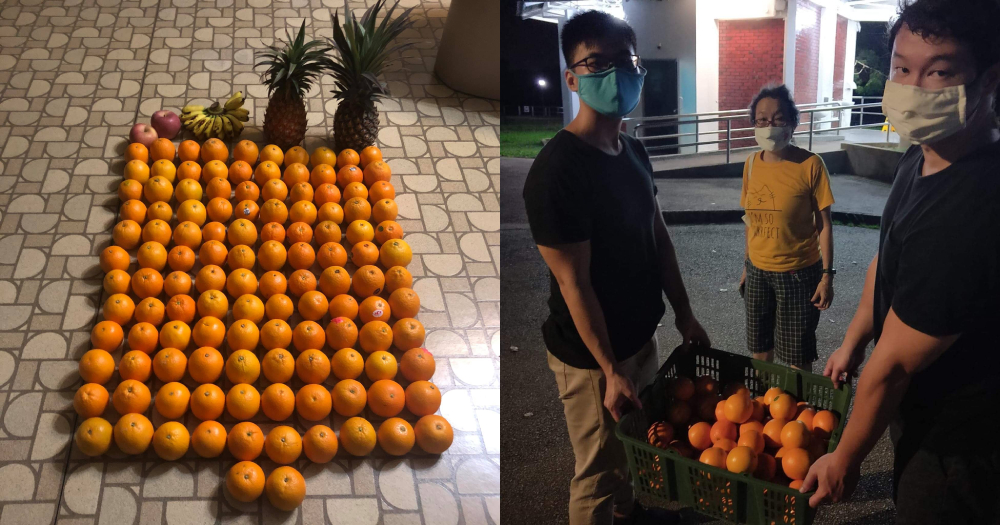Every year, the Hungry Ghost Festival sees participants leaving prayers and then offerings for the departed to feast on.
According to one Singaporean, the event is also an opportunity for those who call themselves Freegans — individuals who desire to reduce waste and reject consumerism.
Tay took to Facebook to write about his experience of going on an "impromptu orange hunt" on Sept. 2, which according to the Chinese Lunar Calendar was also the 15th day of the seventh month; the day Hungry Ghost Festival falls on.
The hunt proved quite a success with Tay finding 122 oranges, two pineapples, two apples, and a bunch of bananas — a 50 per cent improvement on their haul from a previous night.
Thank the Ghosts when you take their "consumed" food
According to Tay, while some may shy away from touching the offerings, they can actually be removed once the lighted incense has burnt out.
He also told 8World that he had consulted a Taoist priest before going on the orange hunt.
"He told me that as long as I waited for the joss stick to finish burning, we can take away the offerings because that means that 'our friends from another world' had already finished eating."
You should, however, thank the ghosts, he added.
In this way, freegans are helping to recycle the waste of ghosts just as they consume the waste of the living.
Origins of the Hungry Ghost Festival
Tay further wrote some facts that he had learned about the Hungry Ghost Festival. These included:
- "In Chinese tradition (not Taoist teaching), the seventh lunar month is called the Ghost Festival. It is a month of prayers and offerings to appease wandering spirits and pray for deliverable of all souls."
- "During this month, offerings are made from the first day of the month. On the actual 15th day, service rituals are conducted for the souls of the netherworld."
- "The Hungry Ghost term is actually Buddhist in origin, and Buddha lived in what is now India, not China. So actually Hungry Ghost originated in India."
He also shared a version of how the festival came about, which legend says was conceived when a monk who pitied ghost who could not eat petitioned Buddha.
Tay full post can be read here:
We deliver more stories to you on LinkedIn
Top image from Daniel Tay's Facebook
If you like what you read, follow us on Facebook, Instagram, Twitter and Telegram to get the latest updates.
